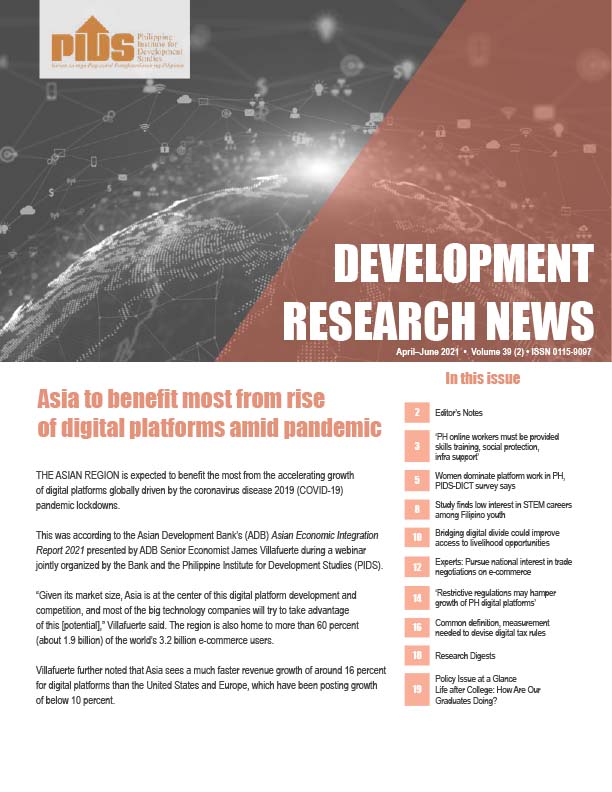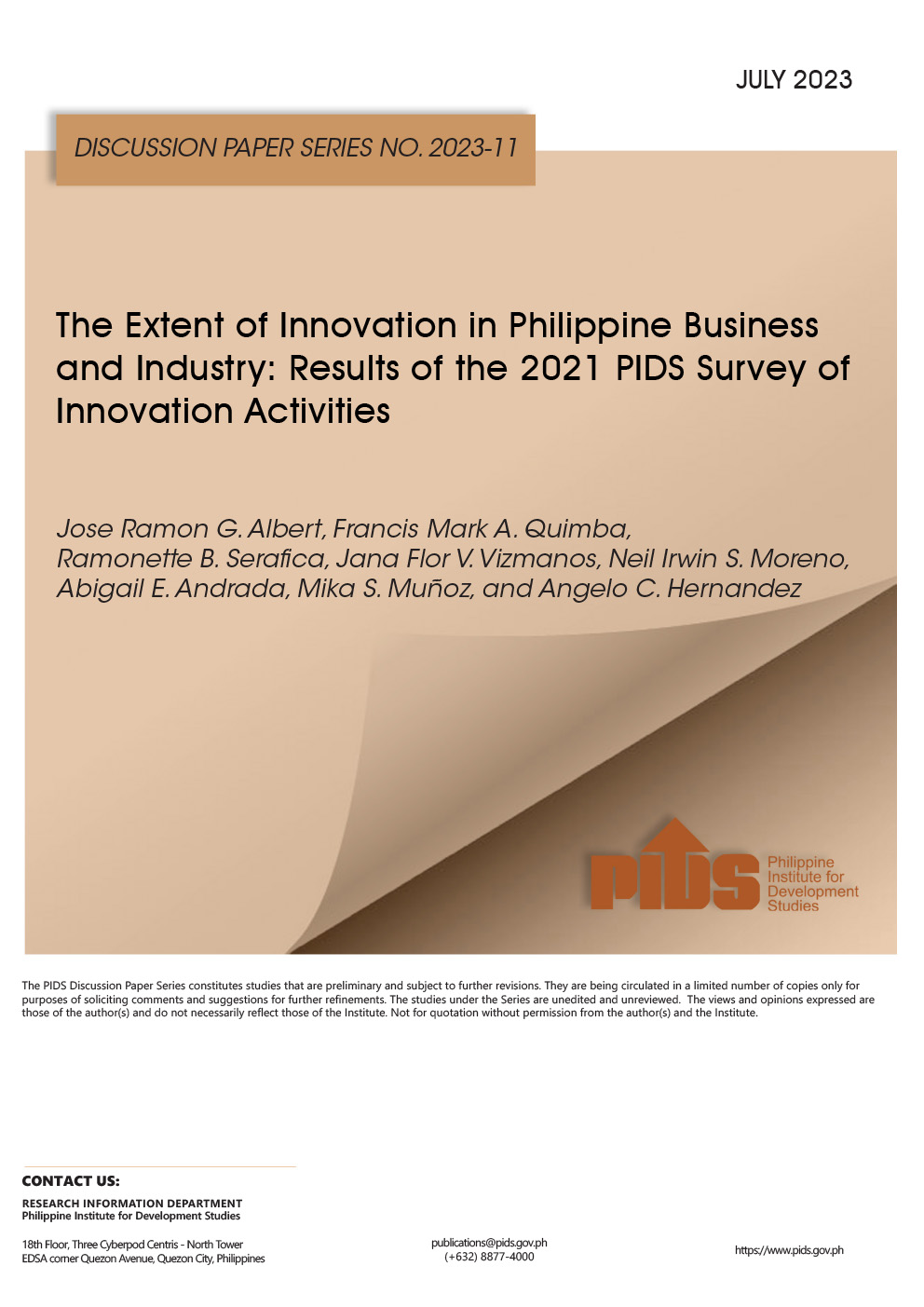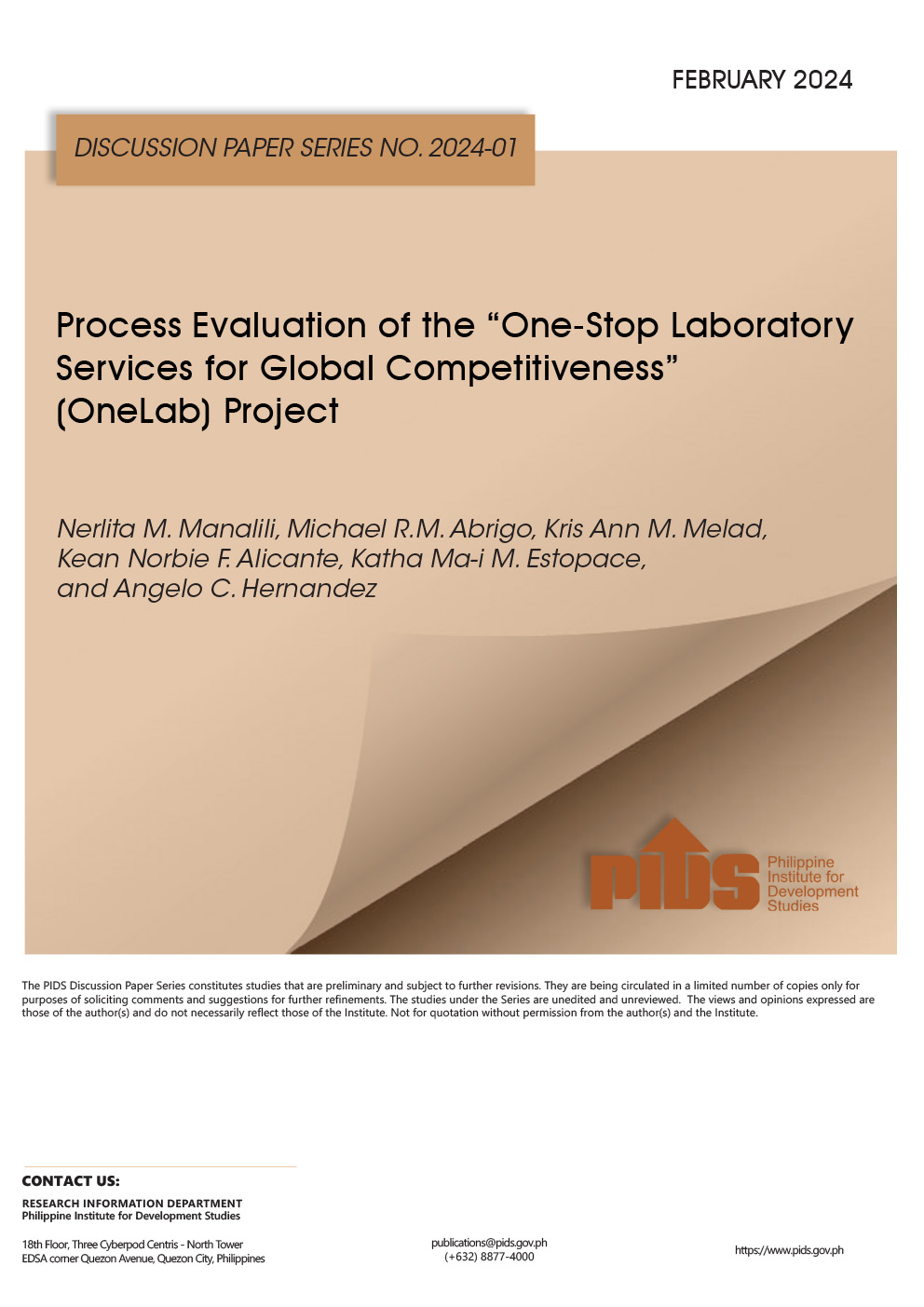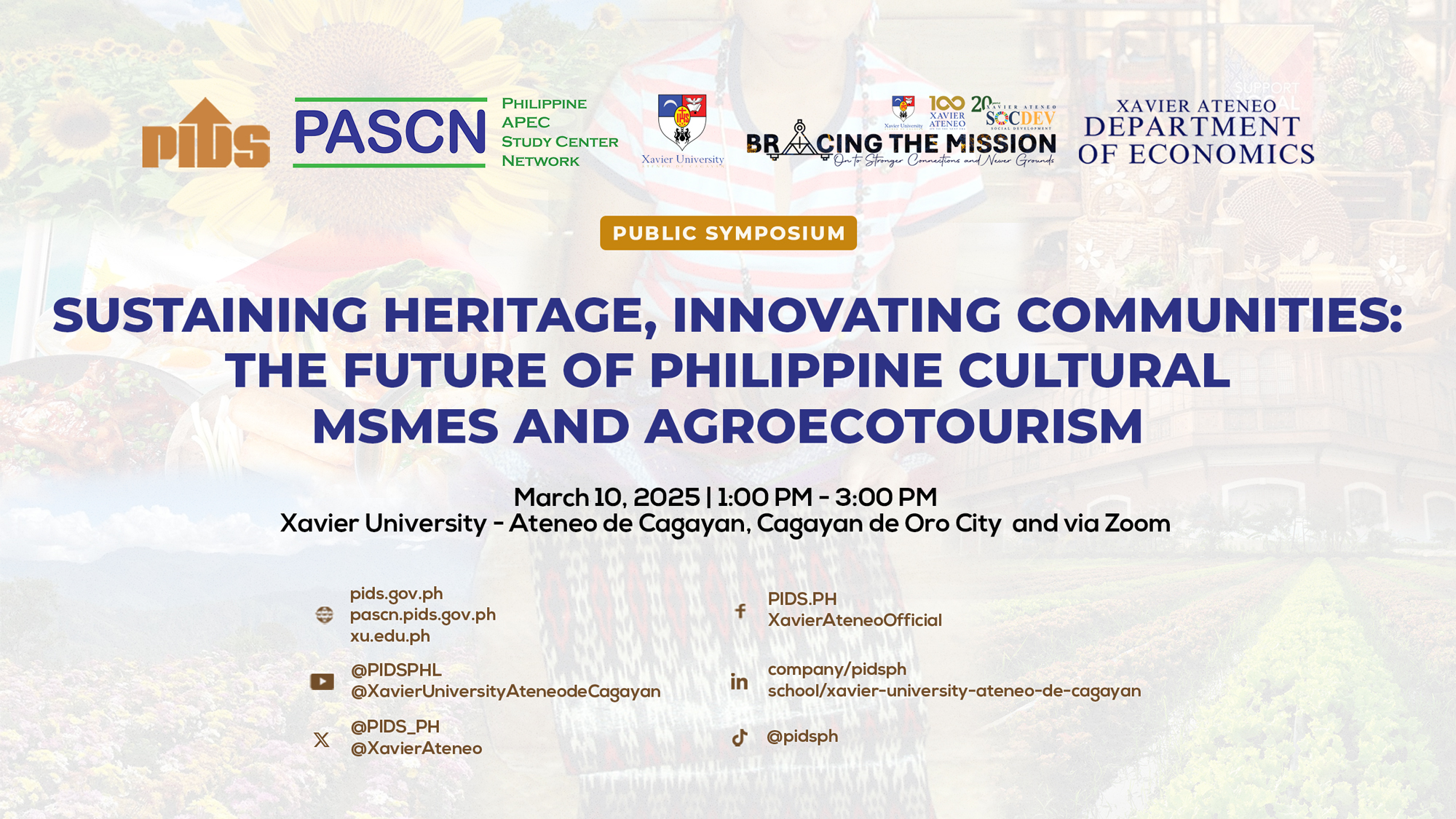The Philippine Development Plan 2023–2028 recognizes innovation as one of the drivers of growth in the services sector, creating a strategic framework to reinvigorate the sector and strengthen creativity and innovation. To help formulate the appropriate strategies and policies, this paper examines the evidence on innovation in service industries using the 2021 Survey of Innovation Activities of Establishments, which provided broader sector coverage. The survey was conducted during the pandemic when firms had to pivot to new modes of service delivery to survive. It gives a more nuanced profile and innovation behaviors of services firms and seeks to identify the effects and determinants of innovation across the services subsectors.
Among the four types of innovation, organizational innovation was the most common type of innovation introduced in most service sectors, followed by marketing, process, and product innovation. For most of the services subsectors, the most common innovation activity of the establishments was “Training for innovative activities”. Across all services subsectors, cost factors are identified as the most common barrier considered of high significance. Organizations that employ at least one FIRe technology, obtain funding, use platforms, engage in R&D activities (whether outsourced or in-house), or use knowledge management methods are more likely to be innovation active and produce at least one type of innovation. The survey also reveals greater reliance on internal and market sources of information while the utilization of institutional and other sources of information, such as incubators, scientific journals or technical publications, and regulatory bodies was low for most subsectors. Universities or other higher education institutions were also not popular cooperation partners. In terms of knowledge management, regularly updating internal databases or manuals was the most popular practice while a policy to bring in external experts from universities, research institutes, or other establishments to participate in project teams was the least common practice across the subsectors.
The Philippine Innovation Act (RA 11293) provides different interventions to address the various impediments related to cost factors, knowledge factors, market factors, and legal or regulatory factors (Albert et al. 2023). Given the diversity of services, a one-size-fits-all strategy will not be effective. While this study presents a snapshot of the innovation profiles of the different subsectors, in-depth analysis of the innovation ecosystem is required to develop industry-specific innovation roadmaps.
Comments on this paper are welcome within 60 days from the date of posting. Email publications@pids.gov.ph.
Citations
This publication has been cited 1 time
- Angelo, Francis Allan. 2024. Innovation Fuels Growth in Philippine Services Sector. DailyGuardian.













